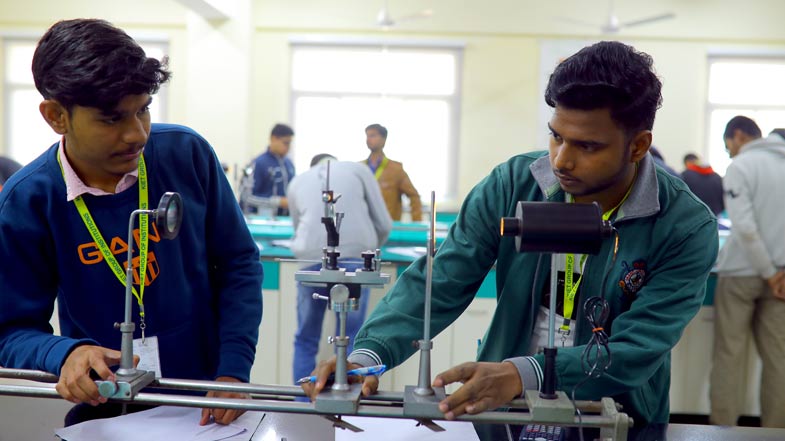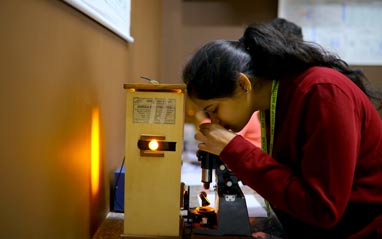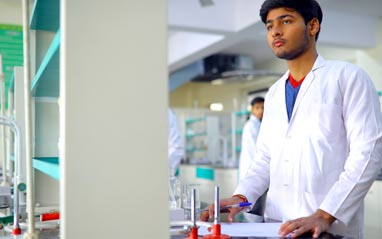Applied Sciences & Humanities
About
Vision
To establish this department as a base for other department's success and rally round inscribing Institution as a brand name in the country and in global arena. The long sightedness is of creating an indelible mark in the minds of the students for their conceptual approach to look forward towards the Department.
Mission
- To propel the department and personnel's attached on the path of eternal success
- To accomplish the aim, make short goals to reach to the zenith.
- To refine students by instilling in them zeal to learn and adapting oneself in constantly updating new world of technology.
- To chisel the knowledge of the students through exposure of new techniques.



PEOs
- PEO-1: To inculcate the fundamentals of Applied Sciences for effective learning of technical subjects.
- PEO-2: To empower the students with additional technical skills and innovative approaches which enhances their practical knowledge for handling real life problems.
- PEO-3: To enrich the students through social, cultural and environmental activities on continuous basis to enhance the team building skills and leadership quality.
- PEO-4: To equip the students for effective communication skill (verbal & written), documentation skills so that they show case their professional competence.
- PEO-5: To enhance the ethical and human value system of student and to create conducive environment.
POs
Engineering Graduates will be able to-- Engineering knowledge: Apply the knowledge of mathematics, science, engineering fundamentals, and an engineering specialization to the solution of complex engineering problems.
- Problem analysis: Identify, formulate, review research literature, and analyze complex engineering problems reaching substantiated conclusions using first principles of mathematics, natural sciences, and engineering sciences.
- Design/development of solutions: Design solutions for complex engineering problems and design system components or processes that meet the specified needs with appropriate consideration for the public health and safety, and the cultural, societal, and environmental considerations.
- Conduct investigations of complex problems: Use research-based knowledge and research methods including design of experiments, analysis and interpretation of data, and synthesis of the information to provide valid conclusions.
- Modern tool usage: Create, select, and apply appropriate techniques, resources, and modern engineering and IT tools including prediction and modeling to complex engineering activities with an understanding of the limitations.
- The engineer and society: Apply reasoning informed by the contextual knowledge to assess societal, health, safety, legal and cultural issues and the consequent responsibilities relevant to the professional engineering practice.
- Environment and sustainability: Understand the impact of the professional engineering solutions in societal and environmental contexts, and demonstrate the knowledge of, and need for sustainable development.
- Ethics: Apply ethical principles and commit to professional ethics and responsibilities and norms of the engineering practice.
- Individual and team work: Function effectively as an individual, and as a member or leader in diverse teams, and in multidisciplinary settings.
- Communication: Communicate effectively on complex engineering activities with the engineering community and with society at large, such as, being able to comprehend and write effective reports and design documentation, make effective presentations, and give and receive clear instructions.
- Project management and finance: Demonstrate knowledge and understanding of the engineering and management principles and apply these to one’s own work, as a member and leader in a team, to manage projects and in multidisciplinary environments.
- Life-long learning: Recognize the need for, and have the preparation and ability to engage in independent and life-long learning in the broadest context of technological change.
